Become a member: Subscribe
Movie of the Week
Richard A. Werner on the Tucker Carlson Show
August 2, 2025
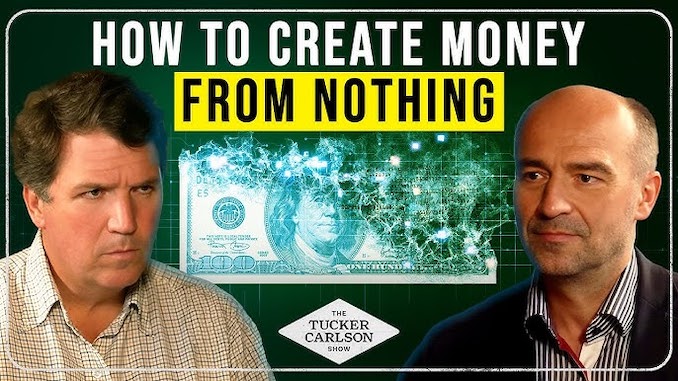
“Japan was … posing some major puzzles that the world couldn’t explain and economics couldn’t explain. All the world-famous experts could not explain. And for some reason, I decided, ‘Okay, I want to solve all these puzzles.’”
~ Richard A. Werner
Movie of the Week
Richard A. Werner on the Tucker Carlson Show
For most non-specialists, including college students subjected to introductory macroeconomics courses, the field of economics has the reputation of being “boring.” However, though clocking in at nearly three hours, world-renowned economist Richard A. Werner’s charming and enlightening July 28 interview with Tucker Carlson is anything but boring! In fact, we are so enthusiastic about this interview that we are publishing our Movie of the Week recommendation early.
Professor Werner is no stranger at the Solari Report, having broken down—in various interviews and publications—complex topics ranging from the threat of programmable CBDCs (or comparable digital control mechanisms) to the economic opportunities afforded by sovereign state banks and banking decentralization, and from the travesties of plunder capitalism to the vast yet uncomplicated potential for abundance.
In his conversation with Carlson, we learn that Werner’s experience as the very first Shimomura Fellow at the Development Bank of Japan in 1991 (a prestigious fellowship offered to non-Japanese researchers) piqued his intellectual curiosity about some baffling features of the roaring Japanese economy of the time—a period when no one but Werner anticipated the 20-year recession to come. As Werner explains, his determination to solve the economic puzzles he encountered in Japan eventually led him in the early 2000s to write Princes of the Yen—one of the best dissections ever written of how central banks engineer economic takedowns. (The initial Japanese-language edition became a bestseller in Japan and later overcame powerful censorship hurdles to get published by the UK’s Quantum Publishers in English.) Werner notes that spilling the beans on what causes boom/bust cycles earned him a visit from the U.S. State Department, which let him know quite bluntly that the CIA was keeping an eye on him.
Part of the fun of this interview is watching Carlson’s evident fascination as Werner explains banks’ unique—yet still largely unrecognized—power to create money “out of nothing” (Werner’s 2014 paper on that topic is the most downloaded Elsevier publication of all time) and Carlson’s astonishment that economic models and theories leave out banking! (Werner comments, “And that is, of course, why [the theories] don’t work.”)
The interview includes other riveting stories, such as how the invention of double-entry accounting helped usher a transition from material alchemy (e.g., attempts to turn mercury into gold) to financial alchemy (creating money out of thin air). This neat trick helped keep usury secret. The story of how French Navy battleships came to Manhattan in the late 1960s to claim France’s gold—and how that led the U.S. in 1971 to “temporarily” suspend the convertibility of the dollar into gold—is also entertaining.
Listening to Werner, it is not hard to conclude that central banks are a terrible invention, but he emphasizes that the credit creation powers of smaller banks, in particular, could redeem the banking industry. When small local banks create credit for productive small- and medium-sized business investment—in goods and services, new technologies, and new ideas—they can become the “magic elixir” for noninflationary growth and prosperity.
“Big banks want to do big deals with big customers. That’s how they earn big money. Who lends to small firms? Only small banks.”
If you have not already dived into John Titus’s War for Bankocracy series (with three episodes published to date), we recommend it as excellent complementary viewing.
Watch Tucker Carlson’s interview with Professor Richard A. Werner:
Related at Solari
The Case for Building Wealth with Richard A. Werner
The Profits of Economic Shock: Case Studies with Professor Richard A. Werner
Blast from the Past: Week of April 17, 2023: Prof. Richard Werner – The Case for Abundance
Let’s Go to the Movies: Week of April 17, 2023: Princes of the Yen
Let’s Go to the Movies: Week of May 26, 2020: Princes of the Yen
Log in or subscribe to the Solari Report to enjoy full access to exclusive articles and features.
Already a subscriber?









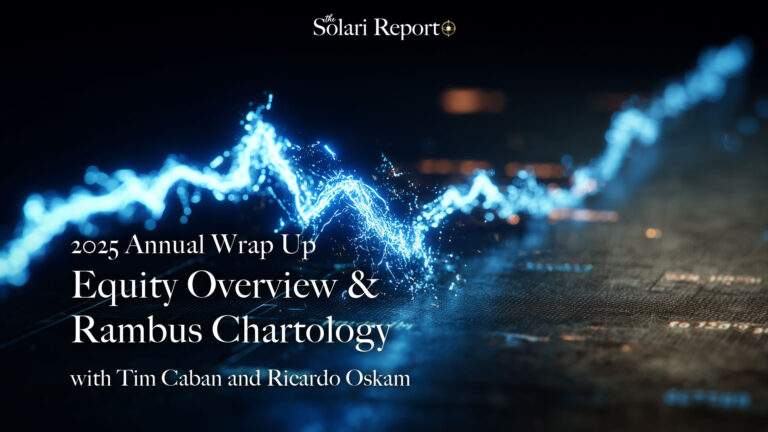
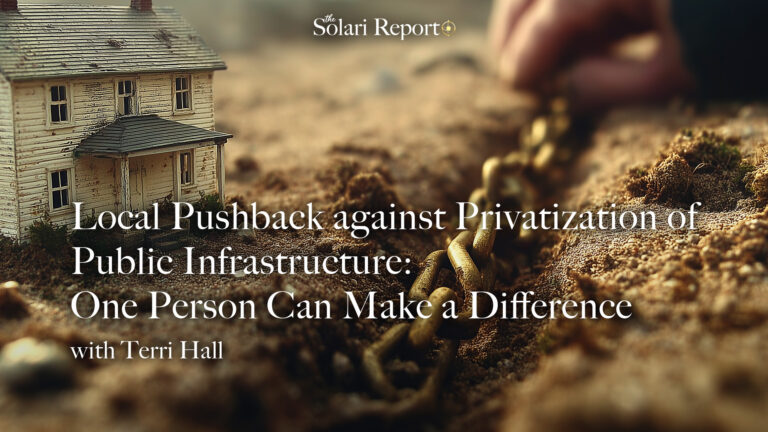
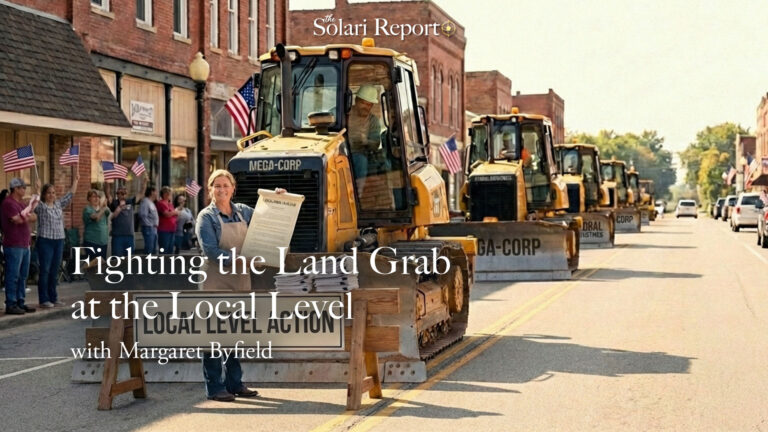

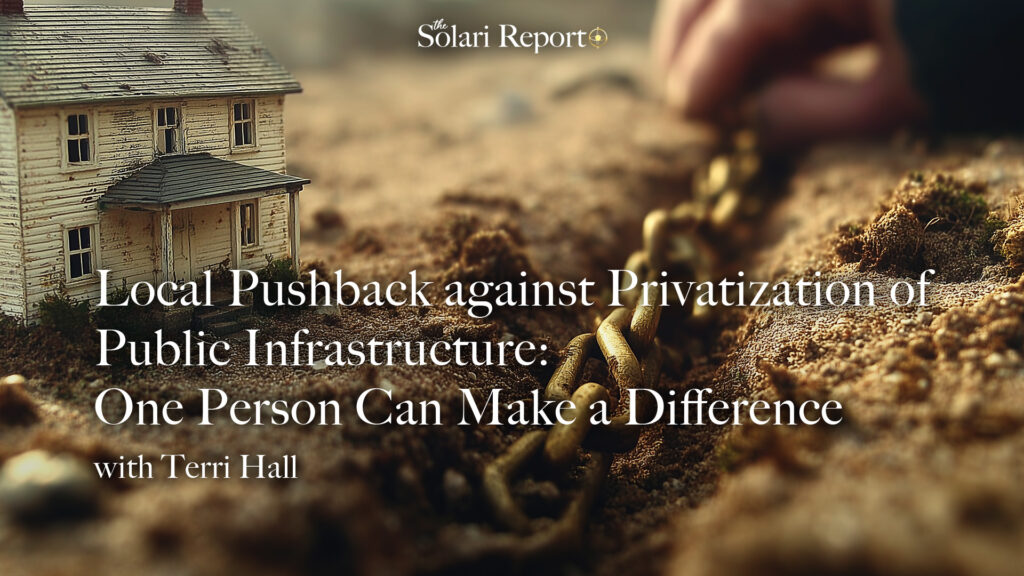
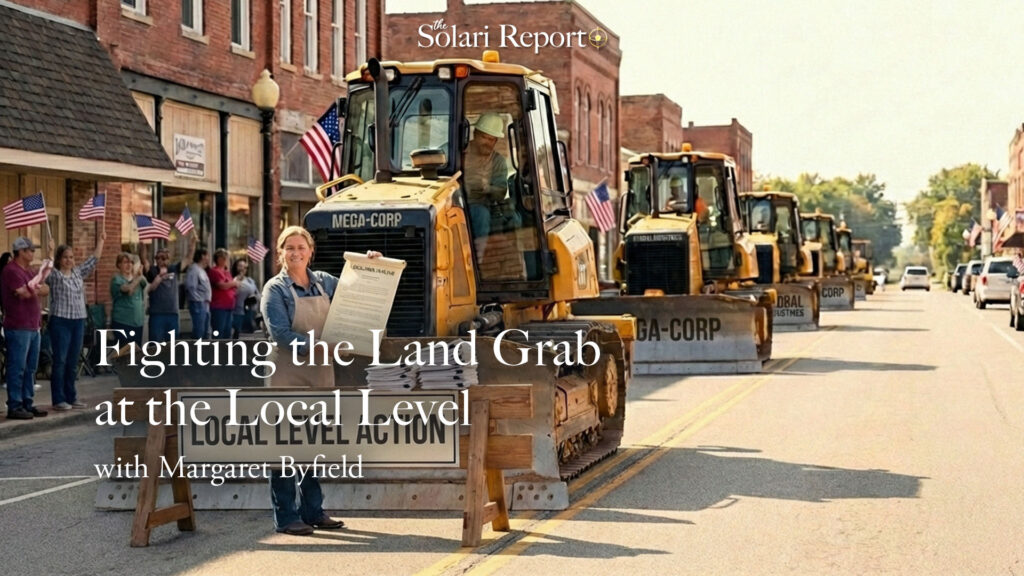






















































































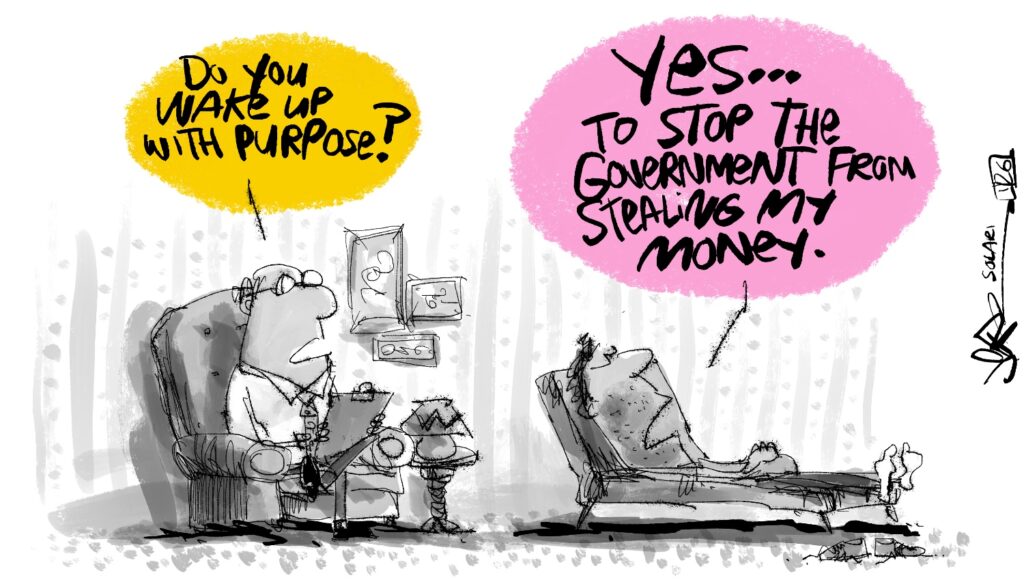






















I watched this because I saw you share it on Twitter (I refuse to call it X). It makes me want to start a local bank! Question, I’ve thought about creating a company that encourages local entrepreneurship and provides mentoring and funding for local kids and people to start businesses. For example, I know many great plumbers, electricians, and yard maintenance people who are good at what they do but don’t have the business acumen to transition from being a tradesman to a business owner. Is it possible to do this and invest money in local startups? The investments would not be loans with interest but would be an investment with a percent of ownership. Kind of like a local shark tank. I know so many wealthy donors in my community who are donating to charities like the US Constitution group. While this sounds great, much of their donated money goes to funding scholarships that are awarded to local kids who subsequently go to a college that teaches them to hate the constitution. Talk about a misallocation of capital. Do you know of other successful models where I could start a business that redirects these investments into our local communities, supporting entrepreneurship, local farms, etc.?
This is like what we proposed to do in the 90’s. Create a local venture fund which also offers back office services – and in which non voting shares can be sold locally. See links here – these are REALLY OLD but will give you an idea
https://solari.com/wp-content/uploads/2012/SolariStockCorps.PDF
https://solari.com/popsicle-culture-2/
See investement related links at bottom https://solari.com/unpacking-your-financial-ecosystem-links-resources/
Is that not something that private investors do? Provide money for businesses and get some type of return as a result. Could be equity and ownership, debt, etc…
Perhaps you could get with like minded people, pool funds and capital and get started on that. Put in your mission statement to keep it local, etc…? Require the business pay back excess funds to help the next guy and make it perpetual with loans being paid back.
Mentors International started by Menlo Smith did something along those lines to help the poorest of the poor start businesses in 3rd world countries. Perhaps you could gain some insights from that model, especially the micro lending portion in the early days there.
I do like the idea of keeping funds local and building your community through helping these businesses in your area succeed. That is a great plan and idea.
Wow. Sounds like a fantastic idea.
I am struggling with giving any entity the power to create credit or as I see it money out of thin air. The entity that creates that money out of thin air would be given a lot of power versus another person.
I don’t understand why we don’t just use gold and silver as a currency and not allow a bank to create credit…
For example, we need to purchase a home, let 20 people pool their assets (such as gold/silver) and build/buy the home. That person could then pay those 20 people back over time (with or without interest depending on their agreed arrangement).
I don’t like any entity being able to create money or credit… Is that what is being suggested? what am I missing in this commentary?
“he [Werner] emphasizes that the credit creation powers of smaller banks, in particular, could redeem the banking industry. When small local banks create credit for productive small- and medium-sized business investment—in goods and services, new technologies, and new ideas—they can become the “magic elixir” for noninflationary growth and prosperity.”
any direction or guidance is welcomed. thank you in advance.
The largest barrier to using gold and silver are sales and capital gains taxes.
I believe Richard A. Werner’s Princes of the Yen is out of print and available for between
$170.64 and $795.97, but it is freely available at https://oceanofpdf.com/authors/richard-a-werner/pdf-epub-princes-of-the-yen-japans-central-bankers-and-the-transformation-of-the-economy-download/
You can order from the publisher, Quantam Publishers https://quantumpublishers.com/uk-cart/index.php?route=product/product&product_id=53
Thanks, and for everything you do!
Catherine, we all need to follow this further to decentralize from banks. How can I as a rich Dad give to family, or others, like banks do? How can I make my local community growth profit on my personal investment to a person, a small local business start-up, other than paying me back personally? I want to follow what the Bible says about this. I need the paperwork that will see this through happily. Interested?
This is great to hear, Charles. Good Luck and have lots of fun doing it!!
Charles:
Best ways are to:
1. Gift to a person
2. Loan
3. Invest in businesses
4. Buy land and lease out
5. Participate in an angel network
6. Donate to a local education institution
You have to identify and find the right people – it is a one person at a time activity.
Fabulous interview!!! Worth several semesters of economic theory, and surely a blueprint for changing what is ahead in the very near future for the US. Richard is a consumate storyteller, and from personal experience, he has this one down! Five stars at least!
No one better. This is why you have seen so much of him on the Solari Report for many years.
In a recent interview I saw in German called “Brisante Enthüllungen“, Dr. Richard Werner mentioned a bank that he is starting in Switzerland. I looked on his web site and didn’t see any reference to it there. Does anyone have any idea where I can find out more about this ?
Dr. Werner interview excellence. Decentralization is the answer. Thank you Vatherine for thiss incredible interview. I am going to finally get and read “Princess of the Yen”.